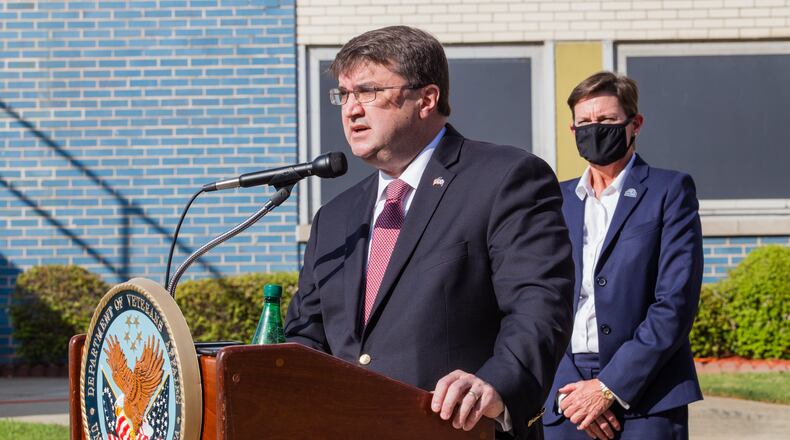One year after the Veterans Administration promised to create a more transparent way to compare the quality of its hospitals with others, some veterans are complaining that it still hasn’t been done.
Public online quarterly reports that measured 46 categories of VA hospital issues, such as infection and mortality rates, have not been updated since 2019, though VA Secretary Robert Wilkie said they would be.
At the same time, the VA has dumped its hospital rating system that awarded one to five stars for quality and replaced it with incomplete or confusing information, some veterans say.
Understanding the information is important to ensure veterans that they are getting care that measures up to other health care providers, and it provides a benchmark for administrators to know where they need to improve.
The old methods may have been imperfect, but the new ones are useless, said Jim Lindenmayer, a Cherokee County veteran and advocate for other veterans through groups such as the American Legion.
“They are not transparent,” he said.
The VA said updates have been delayed by the coronavirus pandemic. In an email response to questions from The Atlanta Journal-Constitution, the VA said it hoped to begin updating quarterly reports again early this year.
In December 2019, when announcing the coming changes, Wilkie said he wanted veterans to be able to see how VA hospitals stack up against nearby non-VA facilities.
The new VA hospital websites let users query issues, such as infection rates of clostridium difficile, an easily spreadable and dangerous bacteria. But there are fewer categories for them to compare than the quarterly reports offered; the websites have less information; and they use terms that aren’t defined.
One page allows readers to see that the Decatur VA hospital scores 49 in “Care Transition,” but doesn’t say what it is, what the scale is or how the score was determined.
The website offers “no results” under queries about infection rates from catheters, heart attack mortality and pneumonia care.
The VA website does give a clear indication of how the Decatur hospital rates overall in comparison to 52 non-VA hospitals in North Georgia — 49th out of the 53 total. The Atlanta VA hospital ranks better than regional hospitals in some areas, such as dates rates from COPD and congestive heart failure.
Another website link promising more information about quality of care takes a reader to the quarterly reports that the VA stopped updating last year.
“You don’t know what any of these things mean,” said Lindenmayer, a West Point graduate. “Did you improve? Not improve? I can’t see anything.”
Credit: Christina Matacotta
Credit: Christina Matacotta
Regarding the quarterly reports that haven’t been updated, Amy Stevens, the founder of the 4,000-strong veterans support group Georgia Military Women, said the 46-plus measures were helpful for medical professionals but difficult for lay people to understand.
She does not think rankings and measurements influenced where veterans choose to get health care.
“The average person does not go out looking for health care based on the ranking of hospitals,” she said.
Credit: alyssa.pointer@ajc.com
Credit: alyssa.pointer@ajc.com
Some like her, use a mix of VA health care and private providers, based on location, availability and personal need. But veterans without private insurance or looking to be thrifty depend wholly on the VA health-care system.
“A lot of them, they don’t have any choice,” she said.
But that doesn’t mean they can’t choose the best doctors. Many, including her, use word-of-mouth in finding providers in the VA system they are happy with, Stevens said.
“A lot of them are very satisfied with their care,” she said.
Lindenmayer believes veterans do look to the information and wants the VA to live up to its promises to deliver it. Other hospital websites include information about awards and rankings in specialties, such as cancer or cardiology. A patient would want to know that, he said. But the information the VA is providing is obtuse.
“You can’t get hide nor hair of what they are good at,” he said.
About the Author
Keep Reading
The Latest
Featured



